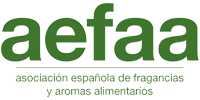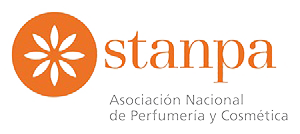The halal food market has been experiencing an increase in demand across Europe, with many food companies striving to meet the needs of the growing Muslim communities in the region. This article explores the growing popularity of halal food options in the United Kingdom and Spain, shedding light on the historical and cultural context as well as the factors driving this trend.
What are halal foods?
Halal foods, in Islamic tradition, are foods that adhere to specific dietary laws and are permissible for Muslims. They are prepared and consumed according to Islamic principles, which include key aspects such as the slaughter of animals by a Muslim invoking the name of Allah, ensuring a quick and humane process with complete blood drainage. Prohibited ingredients like pork and alcohol are strictly excluded, and ethical treatment of animals is emphasized. Additionally, halal food preparation involves avoiding contamination by using utensils, equipment, and facilities that have not come into contact with non-halal substances to maintain purity. Halal foods go Beyond Meat to include various food products like fruits, vegetables, grains, and dairy, as long as they adhere to these principles, with halal certification from recognized Islamic authorities providing assurance to consumers.
Halal Food Market in Spain: The History Behind Halal Foods in Spain
Spain’s halal culinary heritage is rooted in its rich history of Muslim rulers, cities, and culture. This historical backdrop has led to the enduring presence of halal cuisine in the country. Over the centuries, a vibrant Muslim population has made Spain their home, and the availability of halal options has not only catered to dietary requirements but also fostered trust and understanding among a diverse range of communities within the nation.
The Growth of Halal Foods in Spain
In recent years, the demand for halal foods in Spain has experienced unprecedented growth. According to data from the Barcelona wholesale market, Mercabarna, an impressive 56% of beef and 62% of lamb sold are slaughtered according to Islamic law. An intriguing aspect of this trend is the growing demand for halal products among non-Muslim consumers. This shift can be attributed to a growing awareness of the benefits of sustainable and healthy food products, with many halal food producers gaining confidence for their commitment to sustainable food production practices.
The Halal Market in the United Kingdom Halal Businesses in the United Kingdom
The COVID-19 pandemic brought significant changes to the United Kingdom, including the emergence of halal meal delivery services in boxes. While there were several halal food businesses in and around London before 2019, none offered meal delivery services. As businesses adapted to the challenges of 2020, new companies seized the opportunity to provide deliverable halal meals to Muslim families across the UK.
Additionally, the popularity of halal meals in the UK had been on the rise for years before the pandemic. In 2016, the Agriculture and Horticulture Development Board estimated the UK halal food market to be worth an astonishing £4.64 billion, with meat products alone contributing £2.6 billion. This upward trajectory is in line with the rapid growth of the Muslim population in the UK, which researchers estimate at 3 million, with projections suggesting it could increase to approximately 13 million by 2050. As the Muslim community continues to expand, the demand for halal products is expected to increase accordingly.
Building Trust and Bridging Communities
The growing demand for halal foods in Europe signifies growing trust and connection between Muslim and non-Muslim communities. As these products become increasingly common, they serve as a bridge between different cultural and religious groups, fostering mutual understanding and appreciation for each other’s dietary choices and traditions.
In conclusion, the growth of the halal food market in Europe, particularly in Spain and the United Kingdom, reflects a broader trend towards inclusivity and sustainability in the food industry. This culinary bridge between communities is not only about meeting dietary needs but also about building trust, promoting cultural exchange, and embracing the diversity that enriches European society.
At Cosmos Aromática, our factories are certified as HALAL. If you would like to receive more information about our products, please contact our team.










